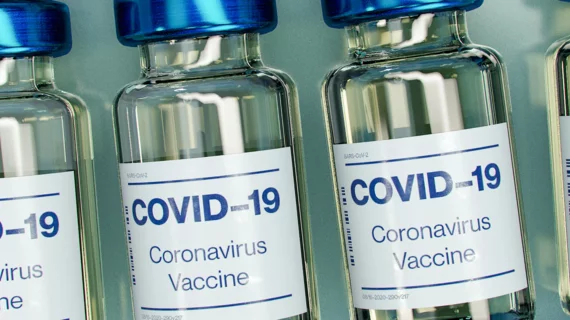A federal advisory panel has revised its guidelines on COVID-19 vaccinations, shifting from strong universal recommendations toward an approach that emphasizes patient choice and individualized decision-making. The move reflects an evolving phase of the pandemic as the virus continues to circulate but causes fewer severe cases compared to earlier surges.
The Centers for Disease Control and Prevention’s Advisory Committee on Immunization Practices (ACIP) voted Monday to update its language on COVID-19 vaccination. Instead of urging broad uptake, the new guidance urges healthcare providers to prioritize informed discussions with patients, weighing each person’s health status, risk factors, and preferences.
“This adjustment does not diminish the importance of vaccines,” said Dr. Helen Keipp Talbot, chair of the ACIP. “It acknowledges where we are today. For many, COVID-19 poses a lower threat than in 2020 or 2021, and recommendations should reflect patient-centered decision-making rather than a one-size-fits-all approach.”
Key Changes
- COVID-19 vaccines remain available and recommended for older adults, immunocompromised individuals, and those with underlying conditions.
- For healthy younger adults, the new guidance emphasizes discussions with providers rather than a blanket recommendation.
- The updated language aligns COVID-19 advice more closely with how the CDC frames annual flu shots—recommended broadly but ultimately chosen by patients in consultation with doctors.
Context of the Shift
The CDC has faced polarized public opinion about vaccine messaging throughout the pandemic. Critics argued that earlier mandates and universal recommendations contributed to mistrust. By reframing guidance around informed consent, health leaders hope to ease tensions and rebuild public confidence.
“People want transparency and choice,” said Dr. Marcus Plescia of the Association of State and Territorial Health Officials. “This approach respects individual autonomy while still making clear that vaccines are an important tool for preventing severe illness.”
What It Means for the Public
The changes do not affect vaccine availability. Updated COVID shots are still being developed annually to match circulating variants. Pharmacies, clinics, and doctors’ offices will continue to administer vaccines, but individuals are now encouraged to consider personal factors—similar to how decisions are made about shingles or pneumonia vaccines.
Public health experts caution that COVID remains unpredictable. While most cases are mild, hospitalizations persist among older and high-risk groups. The CDC continues to stress that vaccination reduces chances of severe outcomes.
As Dr. Talbot noted, “It’s not about telling people what they must do. It’s about giving them the best information so they can make the choice that’s right for them.”



